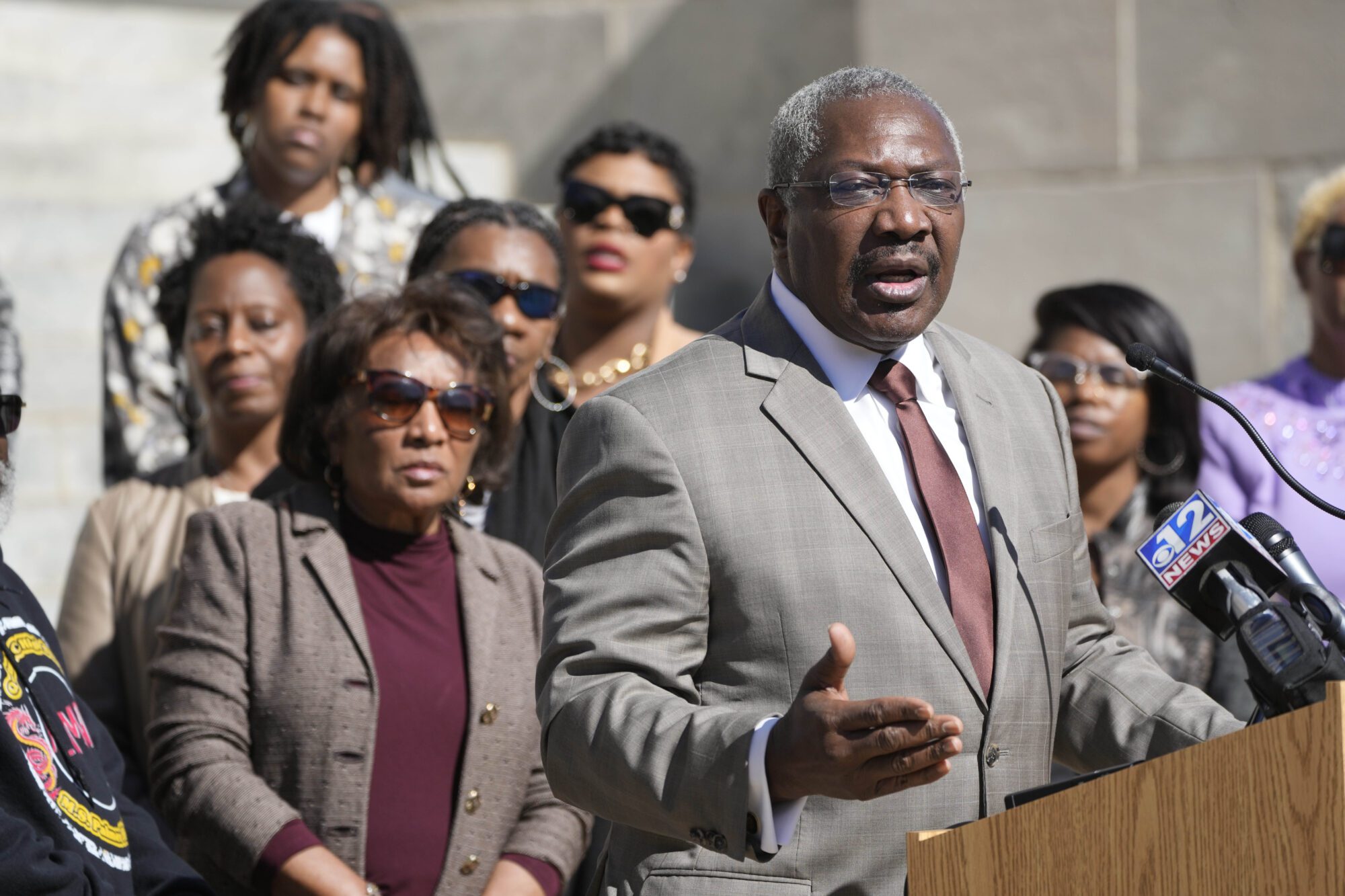
This image provided by Commonwealth Media Services shows damage after a fire at the Pennsylvania governor’s mansion while Democratic Gov. Josh Shapiro and his family slept inside on Sunday, April 13, 2025, in Harrisburg, Pa. (Commonwealth Media Services via AP)
- The only way to combat this, writes Kimberly Ross, is to be consistent when it comes to the basic tenets of morality.
In the early morning hours of Sunday, April 13th, 38-year-old Cody Balmer firebombed Governor Josh Shapiro’s home in Harrisburg, Pennsylvania. Thankfully, the entire family escaped what turned out to be a devastating blaze. According to an arrest warrant, Balmer targeted Shapiro based on “what he wants to do to the Palestinian people.”
Balmer is certainly not the first individual propelled to commit violence because of personal hatred toward another. The current political and cultural climate is such that hatred is almost viewed as a pass to cause harm. If you hate your fellow man enough, violence is justified to serve a seemingly noble end.
On December 4th, 2024, Luigi Mangione shot United Healthcare CEO Brian Thompson in the back as he walked along a New York City sidewalk heading to a business meeting. Mangione is seen as a folk hero by some, a sort of Robin Hood figure whose “sacrifice” was meant to push back against a predatory health insurance industry. In his brief manifesto, Mangione wrote, “I do apologize for any strife of traumas but it had to be done. Frankly, these parasites simply had it coming.” Mangione did not make any sort of measurable change to health insurance or health care as a whole. All he did was kill an innocent man and father of two. Still, he is lauded by mostly younger Americans as having done something worthwhile. In this scenario, it is victim Brian Thompson who is looked upon negatively simply because of his job.
On July 13th, 2024, President Donald Trump was shot at a campaign rally near Butler, Pennsylvania. He miraculously survived what was an assassination attempt, turning his head at the last moment and receiving only a slight injury to his ear. Though the dead perpetrator’s particular motivations are unclear and may forever remain a mystery, the fallout from the attempted murder is deeply disturbing. Not only did some think Trump faked his ear injury, but far too many actually acted disappointed that Thomas Matthew Crooks plan ultimately failed.
It is the morally consistent position to be repulsed by any act of violence, no matter the intended target, no matter the motivations behind it. This applies even in situations where a “successful” outcome is expected to somehow transform things for the better. There’s no equation where taking an innocent life improves things. That this basic morality needs to be repeated is a sad reflection of the times in which we live.
The hatred that justifies this type of violence is exacerbated by the internet. Not only do like-minded individuals see the behavior and idolize and/or wish to duplicate it, but an unknown number in the general population actually cheer it on. They are not to blame for the crimes, but their support takes a morally unacceptable act and sanitizes it. Just enough that it blurs the lines between good and bad. This is a net negative for society, especially one so easily confused and swayed as this one. A cursory glance at Luigi Mangione’s GiveSendGo campaign, which has raised more than $930,000 of a $1,500,000 goal, points to this reality. Messages from donors include things like “We love you. We’re not going anywhere”, “You are a hero!”, and “Luigi, I’d be proud to have a son like you!” This is a documented example of the sickness.
One of the many problems with the “hatred is enough” mentality is that it moves beyond political figures or CEOs to regular citizens. Despise your fellow man or woman enough? Then do as you please, because your feelings of rage are valid. And apparently, you’ll find enough rapport.
Our societal temperature is at an all-time high. It needs to be lowered. There’s no way it can continue on like this indefinitely. The internet has helped to create an environment where politics and cultural loyalty supersede most everything. We collectively view our neighbors, near and fear, in terms of who and what they represent. If they are dehumanized, it’s easier to casually treat them as an enemy entity instead of fellow Americans who have different viewpoints. Agreeing to disagree is out. Compromise is passé. This creates a breeding ground for negativity to turn into hate. And then full-blown hate steps off the page to real-world actions.
The recent spate of well-publicized violence and reactions to it show egregious behavior is acceptable in the eyes of far too many. The only way to combat this is to be consistent when it comes to the basic tenets of morality. Given the fiercely tribalistic passions at play on both sides of the political and cultural aisles, this is easier said than done.











